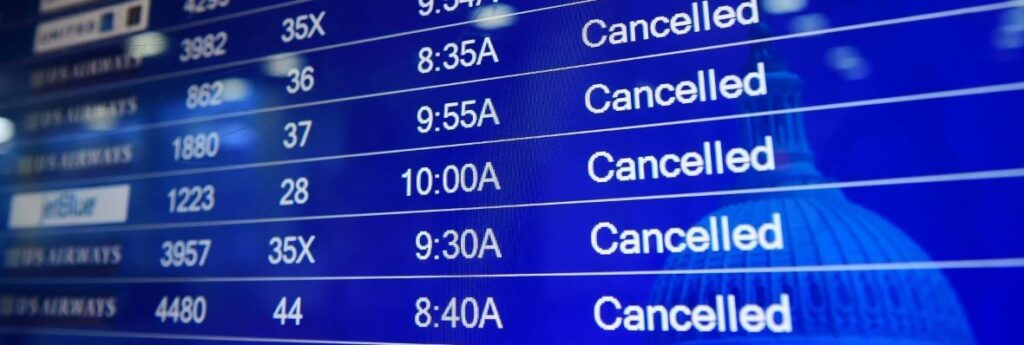With a warning that flight cancellations are becoming “an almost-expected part of travel,” airlines cancelled more than 1,700 flights in the US in single day late last week, one of the worst days yet for travel as the peak summer vacation season heats up.
At LaGuardia Airport in New York on Thursday, more than one-third of all flights were scrubbed, and more than one-fourth of flights were dropped at nearby Newark Liberty airport in New Jersey. And the chaos continued on Friday and over the weekend.
Besides the New York City airports, the most cancellations were chocked up at Charlotte, North Carolina, a major hub for American Airlines and Reagan Washington National outside Washington, D.C.
And they happened as airline CEOs held a virtual meeting with Transportation Secretary Pete Buttigieg – a sign of the Biden administration’s concern about the prospect of snarled airports and unhappy travellers this summer.
“I let them know that this is a moment when we are really counting on them to deliver reliably for the travelling public,” Buttigieg told NBC News.
During the meeting, which took place by videoconference, Buttigieg asked the CEOs to describe steps they are taking to operate smoothly over the July 4 holiday and the rest of the summer, according to a person familiar with the call but not authorized to discuss it publicly.
Buttigieg also pushed airlines to examine whether they can handle the schedules that they have published, and to improve customer service, the person said.
Two US senators said this month that the holiday weekend performance “raises questions about airline decision-making.” Richard Blumenthal of Connecticut and Edward Markey of Massachusetts said delays and cancellations “are occurring so frequently that they are becoming an almost-expected part of travel.”
The airlines blame bad weather and the Federal Aviation Administration, an arm of the Transportation Department that manages the nation’s airspace. In a letter to the senators, Calio ticked off a long list of FAA delays and staffing problems over the holiday weekend.
But while weather is always a wild card when it comes to flying in summer, airlines have also acknowledged staffing shortages as travel roared back faster than expected from pandemic lows. Airlines are scrambling to hire pilots and other workers to replace employees whom they encouraged to quit after the pandemic hit.
It takes months to hire and train a pilot to meet federal safety standards, but the Transportation Department sees no reason the airlines cannot immediately add customer-service representatives to help passengers rebook if their flight is cancelled.
The airlines have jousted with the FAA this spring over delays in Florida, where air travel recovered more quickly than in many other parts of the country. After meeting with airline representatives in May, the FAA agreed to increase staffing at an air-traffic control centre near Jacksonville and make other changes.
Concern about flight problems comes as the number of air travellers in the US pushes above 2.2 million a day. That is still about 300,000 fewer per day than in mid-June 2019, but crowds will grow over the next several weeks and almost certainly break the pandemic-era record set on the Sunday after Thanksgiving last year.
Bottlenecks could pop up at gateway airports where travellers enter the United States. Last week, the Biden administration dropped a 16-month requirement that people test negative for COVID-19 before boarding a flight to the US. That decision is expected to boost international travel with United Airlines saying that it saw an immediate increase in searches for overseas flights.
Another threat: The FAA is urging airlines to quickly upgrade equipment that might be vulnerable to radio interference from new wireless service. The agency’s acting administrator, Billy Nolen, told airlines last week that Verizon and AT&T plan to turn on hundreds of 5G C-band transmitters near airports on July 5.
Dire forecasts of fallout from the wireless companies’ initial C-band service failed to come true early this year, still, Nolen said the FAA can’t promise that there won’t be problems with some planes. He said industry officials have found a way to retrofit many planes with problematic gear by the end of the year and others in 2023.

